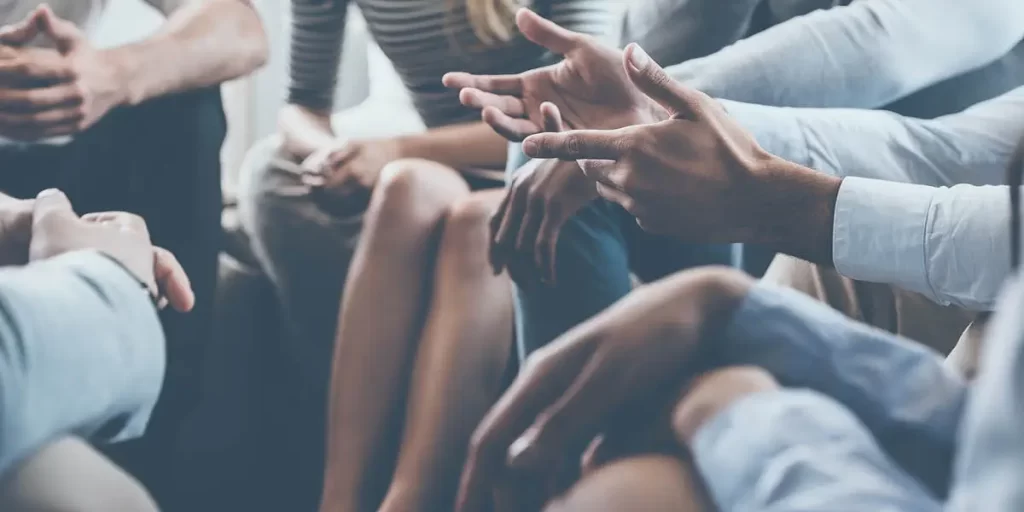Does Socialization After Treatment Decrease Relapses?

Mike Marshall, co-founder and director of Oregon Recovers, recently worked with state lawmakers to create House Bill 2627. The bill, if it passes, would establish four recovery community centers in Oregon. Marshall has worked for years in Multnomah County to help create social support communities for people in recovery.
Marshall, who is 11 years sober, says that there are issues with the current system. The focus is entirely on treatment, and then when someone leaves inpatient or outpatient treatment, they feel like they have no support.
The centers Marshall hopes to help establish in Oregon would be based on a program called 4th Dimension Recovery Center, or 4D. This program is open to people in Multnomah County, ages 18 to 35, who are in recovery from substance use disorders. 4D is unique from a 12-step program not only in terms of the age demographics but also the structure of the program. Attendees say it’s not just a place to go to meetings, it’s a place where participants can connect with mentors and participate in free activities, like yoga or fitness classes, to help them in recovery.
The idea is to help promote ongoing sobriety through the building of a positive social network. The 4D recovery group is also peer-led, and once someone progresses in the program, they can then become a mentor and help others as a way to maintain their sobriety.
Peer recovery support groups and services are unique from options like twelve-step groups. Peer recovery services are meant as a way to help people stay engaged in their recovery by providing a combination of group and one-on-one experiences, community-building activities and the development of social networks and opportunities for substance-free socializing.
It’s common that once someone leaves treatment they can feel alone, even if they have family support. Many of their existing social circles and friends may still be using drugs or alcohol. Even when someone does have support from family or loved ones, they may be unable to empathize or understand what the person in recovery is experiencing.
Marshall’s proposed centers would be modeled after 4D in many ways, but would also integrate 24-hour support. This support would include a 24-hour telephone line with peer support along with in-person support available 12 hours a day. Marshall feels that one of the biggest problems in the current approach to addiction treatment is that people get treatment, and then they’re left to fend for themselves.
The proposed legislation would have centers in operation no later than January 1, 2021. Regardless of what happens with that particular bill, Washington County is awarding a contract to 4D to open a second center.
Participants in the 4D program feel like it gives them something to do outside of attending meetings. It allows them to do the things they enjoy and have a social support network just as someone outside of recovery would have, but without the addition of drugs or alcohol.
According to research cited by the Department of Veterans Affairs (VA), people with substance use disorders who participate in self-help groups tend to have better outcomes than people who don’t. A meta-analysis of currently available research showed that peer support can help improve the likelihood of long-term recovery from problems with drugs or alcohol.
If the bill passes in Oregon, proponents hope some of the resources will go to more rural areas in the state, where people tend to have little, if any, recovery resources available to them. The law would distribute around $5 million to at least four organizations, each of which would be in a different county.
Sources
Tracy, Kathlene, and Samantha P Wallace. “Benefits of peer support groups in the treatment of addiction.” Substance Abuse and Rehabilitation, September 29, 2016. Accessed June 18, 2019.
Moos, R., & Timko, C. “Outcome research on twelve-step and other self-help programs.” Textbook of Substance Abuse Treatment, 2008. Accessed June 18, 2019.
View Sources
Tracy, Kathlene, and Samantha P Wallace. “Benefits of peer support groups in the treatment of addiction.” Substance Abuse and Rehabilitation, September 29, 2016. Accessed June 18, 2019.
Moos, R., & Timko, C. “Outcome research on twelve-step and other self-help programs.” Textbook of Substance Abuse Treatment, 2008. Accessed June 18, 2019.




